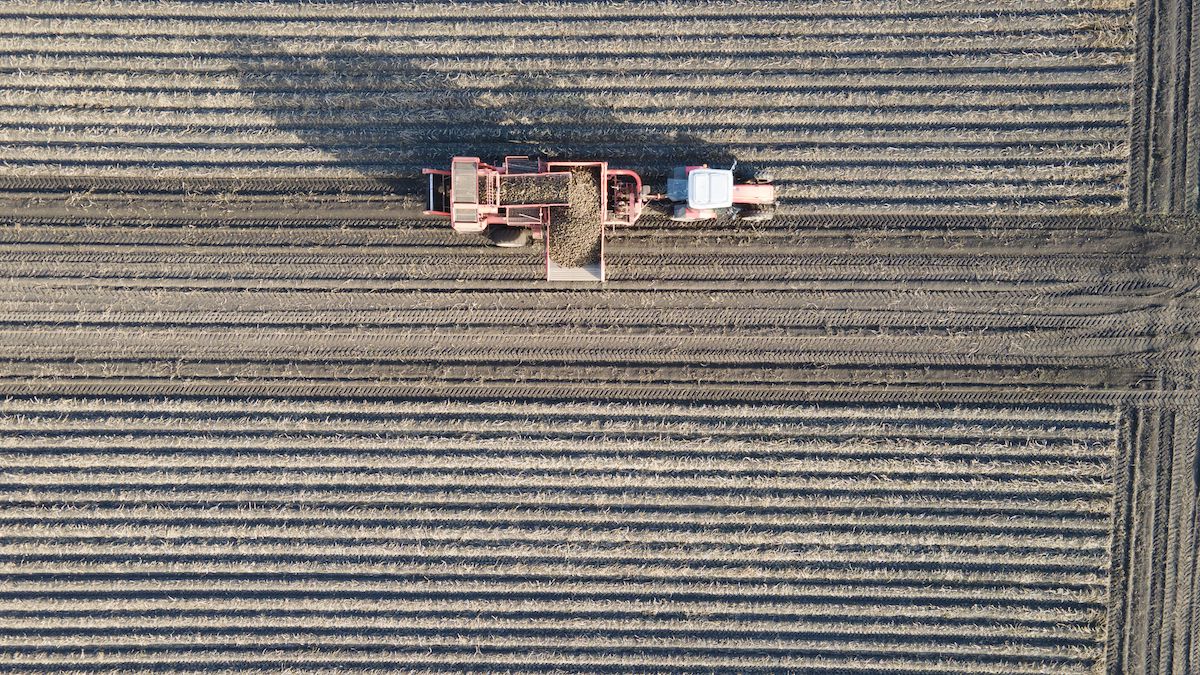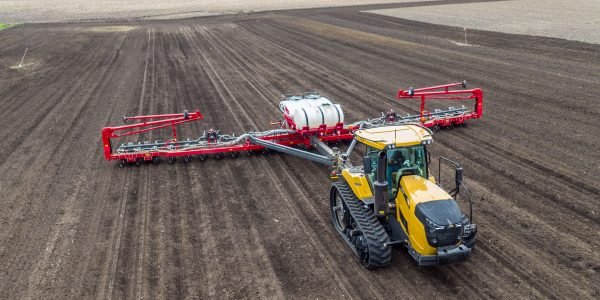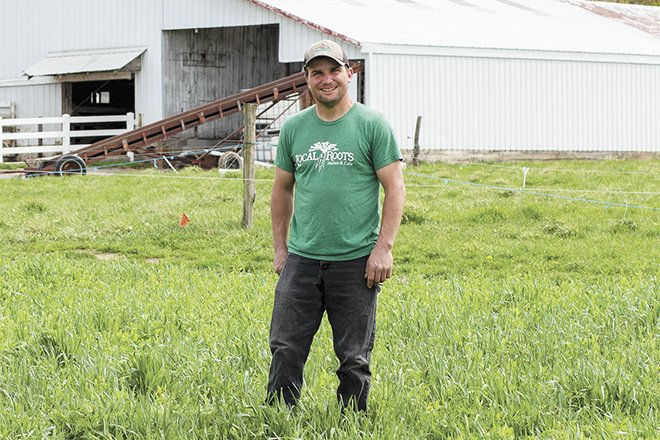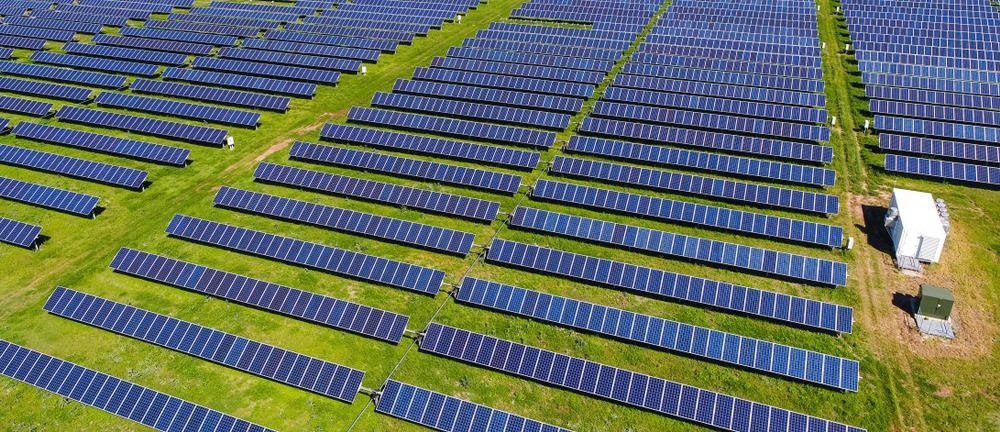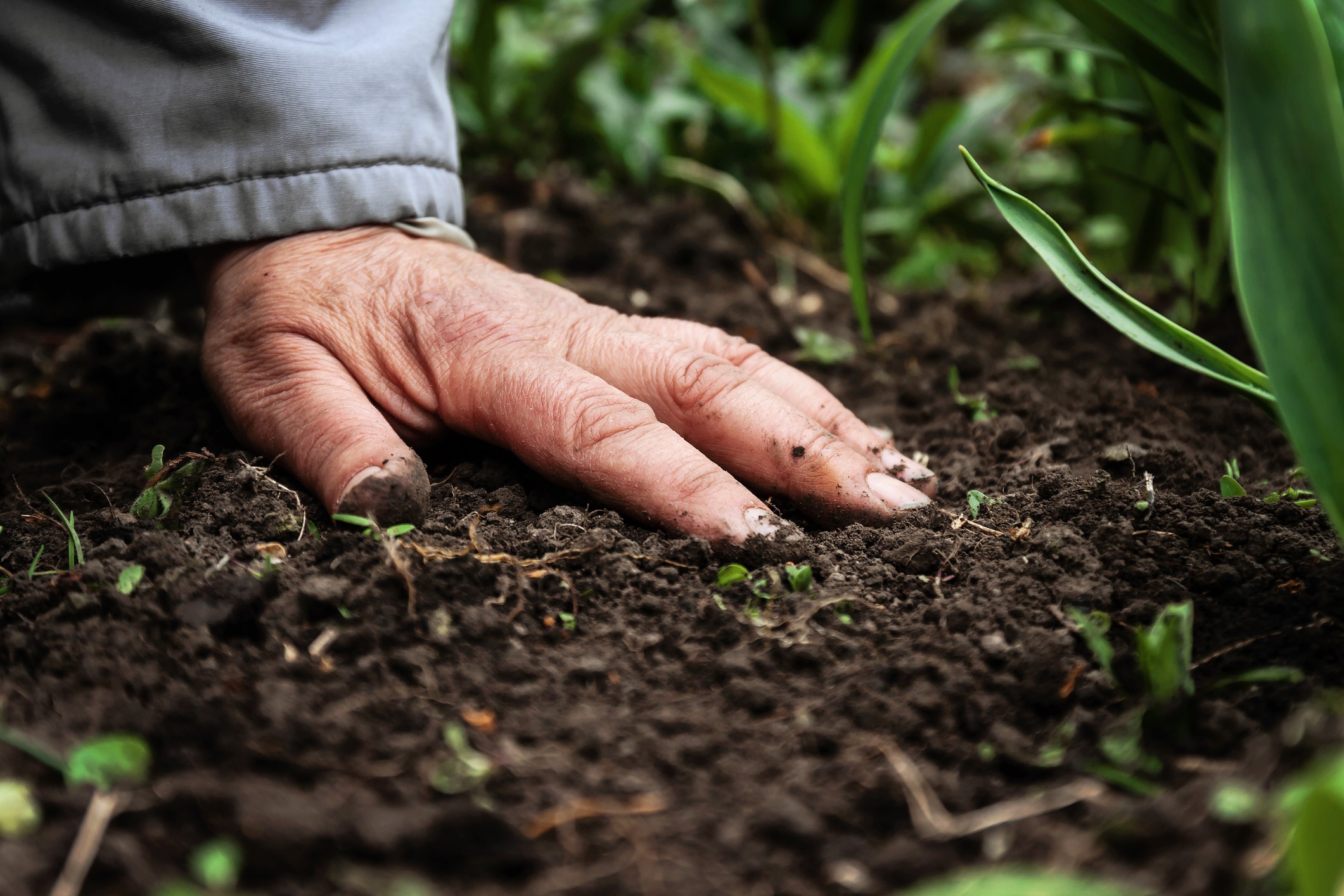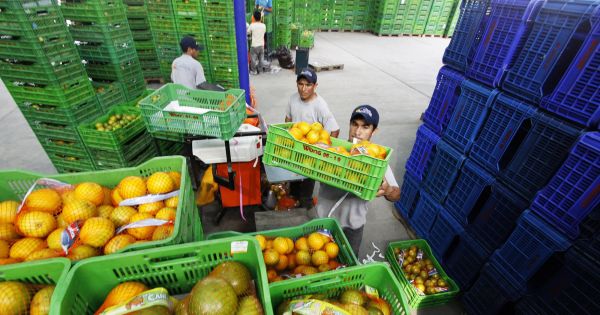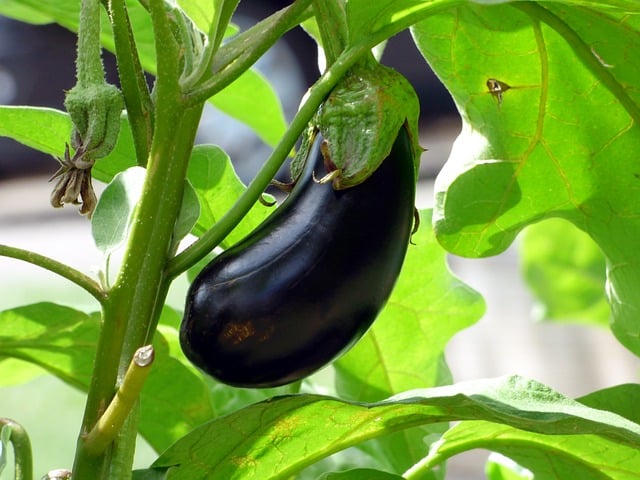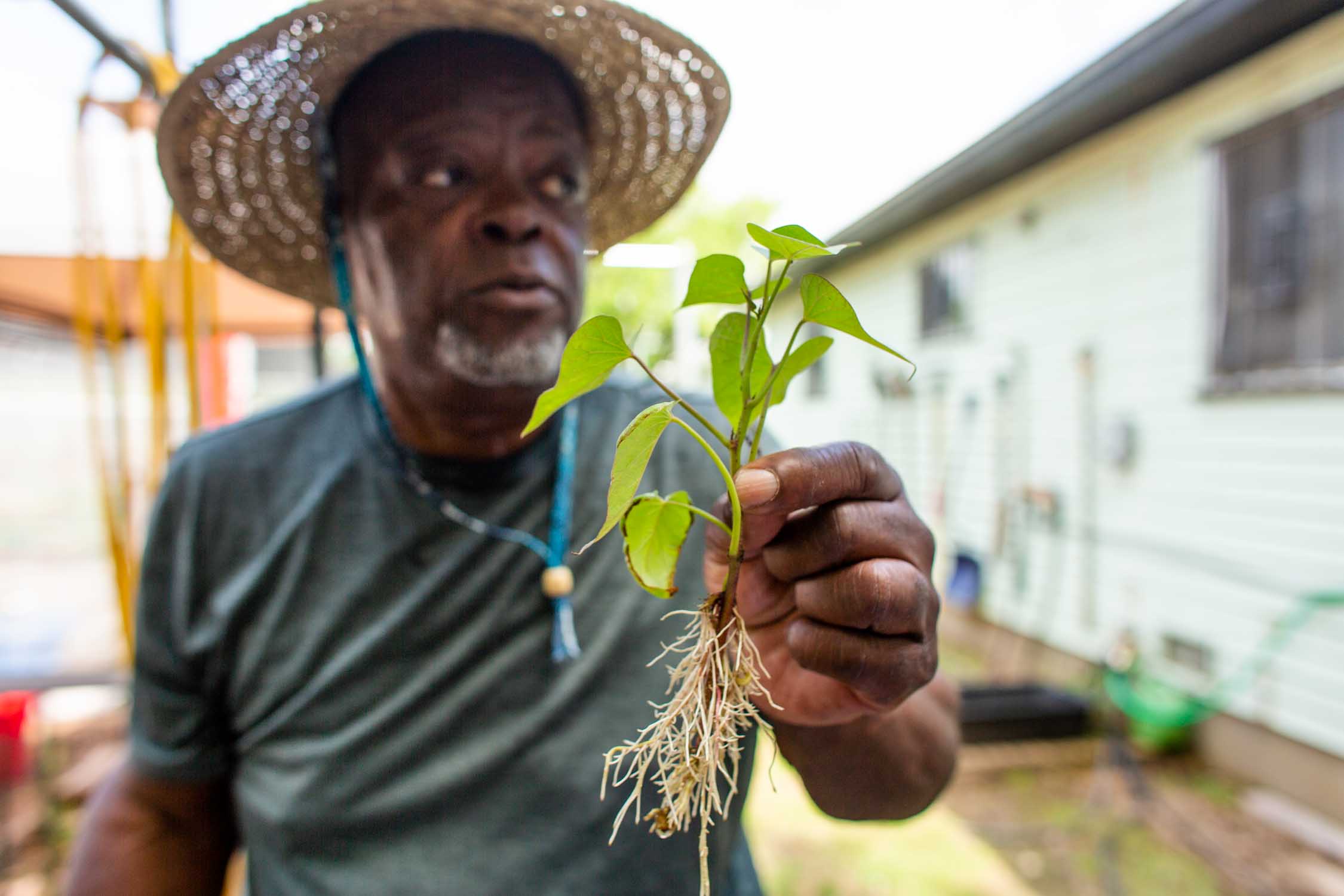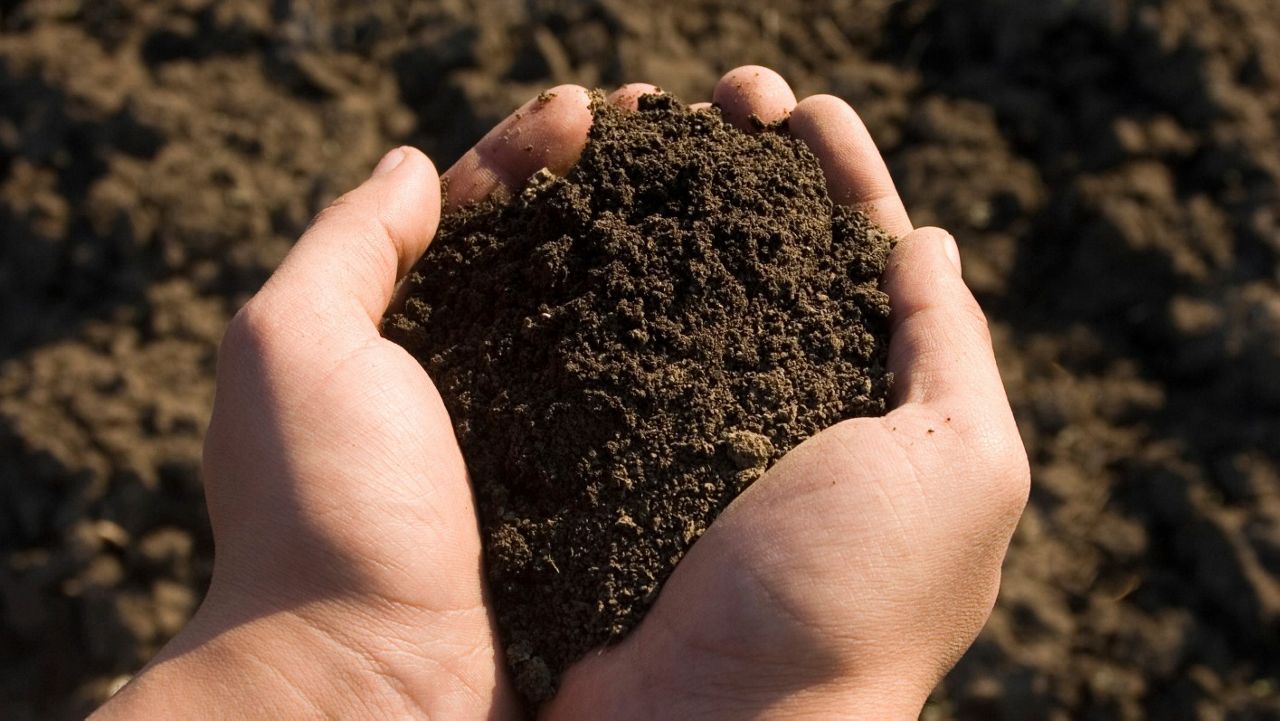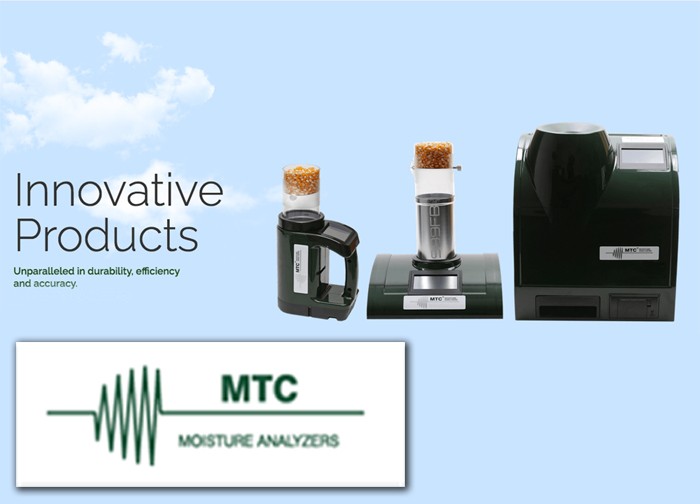06/09/2021 SOURCE: www.treehugger.com
Potato giant McCain vows to fully switch over to regenerative agriculture by 2030.
Frozen Potato Giant McCain Commits to 'Regenerative' Agriculture
-
(1)
-
Bookmark
- Comments. (0)
 John LaRose Jr.
John LaRose Jr.
Topics: Precision AG , Crop Consultant, Agriculture Global, Economics, Sustainability, World Hunger, World Population, Regenerative Agriculture,
-
(0)
-
Bookmark
- Comments (0)
06/08/2021 SOURCE: ocj.com
By Brianna Gwirtz, OCJ field reporter“Despite all our achievements we owe our existence to a six-inch layer of topsoil and the fact that it rains.” This quote, made popular by a Midwestern equipment dealer, has been around for years, but it still rings true. Many farmers have made conscious efforts to improve that layer of topsoil, and in turn, improve the health of their crops. The
An organic approach to soil health
-
(0)
-
Bookmark
- Comments. (0)
 John LaRose Jr.
John LaRose Jr.
Topics: Precision AG , Agriculture US, Agriculture Global, Sustainability, Regenerative Agriculture,
How Airports Could Be a Key Player in Reaching a Zero-Emission Economy
Research argues that fully integrated solar airports would significantly reduce greenhouse gas emissions and could be up to 10 times more effective than existing residential rooftop PV systems.
-
(0)
-
Bookmark
- Comments (0)
06/07/2021 SOURCE: today.tamu.edu
Changes in environment, government policy, technology and more have increased interest in carbon farming, Texas A&M AgriLife experts say.
Is Carbon The 'Crop' Of The Future?
-
(0)
-
Bookmark
- Comments. (0)
 John LaRose Jr.
John LaRose Jr.
Topics: Agriculture US, Cover Crops, Crop Consultant, Education U.S. MidWest, Sustainability, USDA, Regenerative Agriculture,
Cover Crops Grow In Popularity, But Not Everyone Can Afford Them
For farmers, soil is everything. "I can't afford to hurt my soils."Liz Graznak is the owner of Happy Hollow Farm a 10-acre, USDA-certified organic farm in the small village of Jamestown, Missouri. Its one of only a few organic vegetable farms in the state. "My farm in general is pretty small, like the amount of ground that I'm growing in is pretty small. So we ask a lot of our soils," Graznak said. Cover crops are used to protect and improve soil health. They're plants, like red clover, that are meant to cover the ground, not to be harvested. They slow runoff, which can both reduce the loss of topsoil due to erosion, and increase soil nutrients. "Where I am farming right here, there's some significant clay in the soils and the cover crops have helped a lot," Graznak said.But because space is limited, planting cover crops isn't always an option so she turns to compost, which is more expensive."In order for me to pay my bills, I have to grow this amount of produce," Graznak said. "So we put them in where we can."Although cover crops are becoming more common, less than 10 percent of all the crop land in the U.S. has them. "We're seeing more big companies, even food companies like General Mills or clothing companies like Wrangler, that are encouraging farmers to use cover crops, which has been a big change in the last few years," University of Missouri Center for Regenerative Agriculture Director Rob Myers said. Agriculture has been seeing the impacts of climate change for years. Experts say cover crops can help fight climate change because they capture carbon from the atmosphere."If we have well-established cover crops, then the cover crops can withstand intense rainstorms because the rainstorm is going to cause what? Is going to cause a lot of erosion," Humberto Blanco, an agronomy and horticulture professor at the University of Nebraska-Lincoln, said. "So it can ...
-
(1)
-
Bookmark
- Comments (0)
 John LaRose Jr.
John LaRose Jr.
Topics: Crop Consultant, Agriculture Global, Economics, Sustainability, World Hunger, Ag South America, Regenerative Agriculture,
Brazil excels at agrifood production and exports, study reveals
A study released Wednesday by the Brazilian Agricultural Research Company (Embrapa) of the national Ministry of Agriculture, Livestock and Supply showed the country was the world's fourth-largest grain producers in the world, it was announced.
-
(0)
-
Bookmark
- Comments (0)
 John LaRose Jr.
John LaRose Jr.
Topics: Organic, Beyond Organic , Food/Nutrition, Gardening, Sustainability, Urban Farming, Regenerative Agriculture,
8 Eggplant Growing Mistakes to Avoid (and Solutions) - Gardening Channel
by Jennifer Poindexter Have you ever noticed there are some plants you see in almost every garden? It’s normal to see tomatoes, peppers, lettuce, squash, and cucumbers. One plant which is becoming a new staple in the garden is eggplant. If you’re considering adding it to your garden, you’re in the right place. I’m going […]
-
(0)
-
Bookmark
- Comments (0)
 John LaRose Jr.
John LaRose Jr.
Topics: Agriculture US, Crop Consultant, Food/Nutrition, Research, World Hunger, Regenerative Agriculture,
-
(0)
-
Bookmark
- Comments (0)
 John LaRose Jr.
John LaRose Jr.
Topics: Soil Health, Agriculture US, Agriculture Global, Sustainability, Research, Regenerative Agriculture,
-
(0)
-
Bookmark
- Comments (0)


